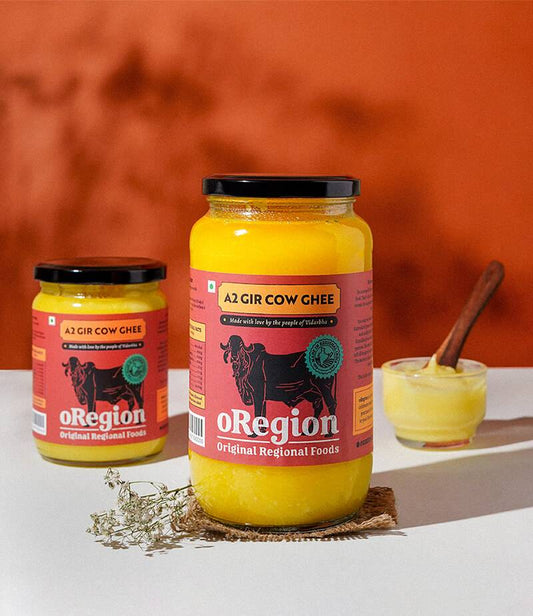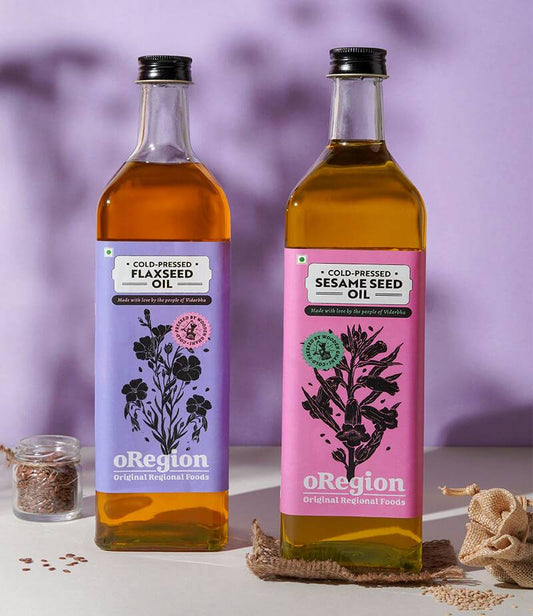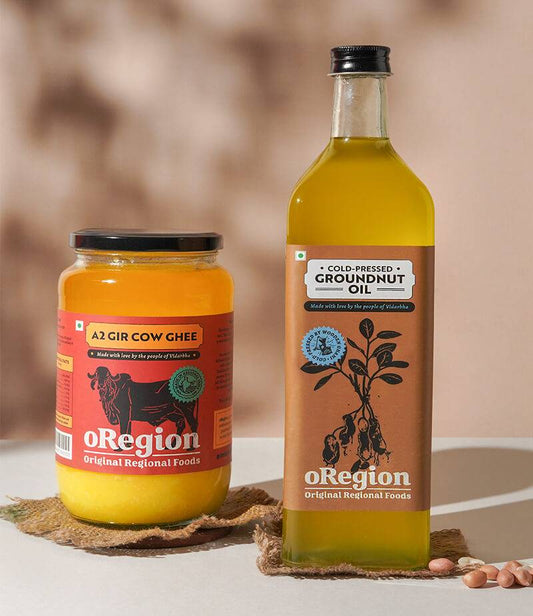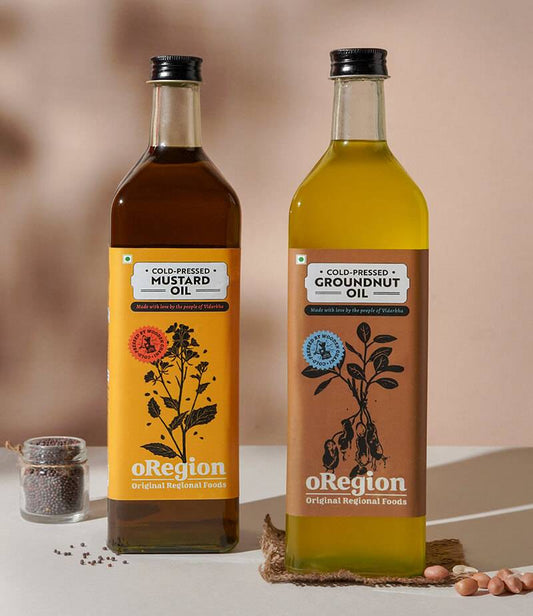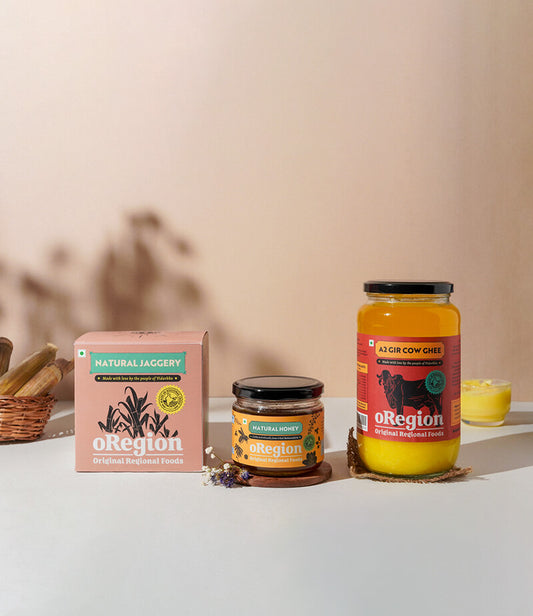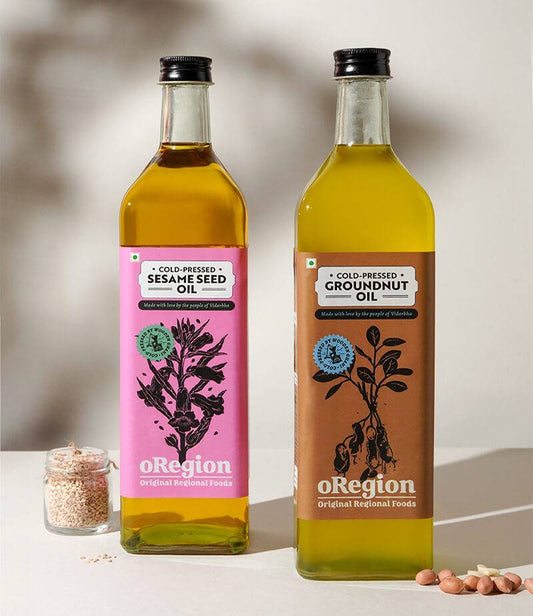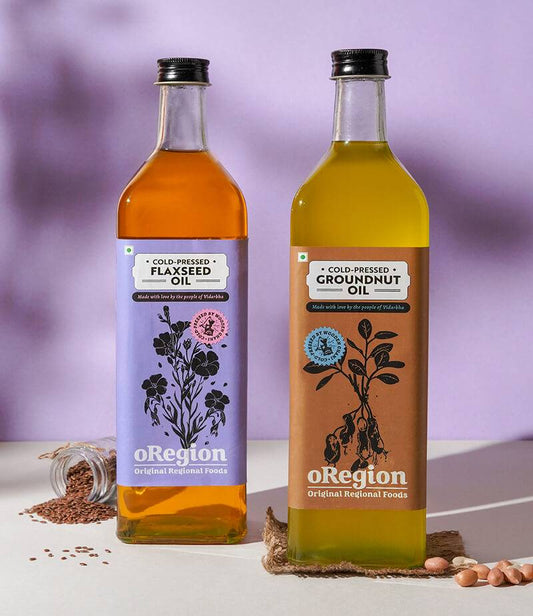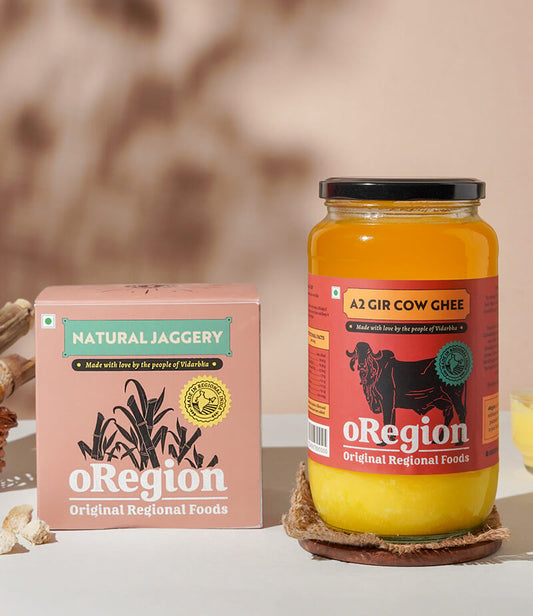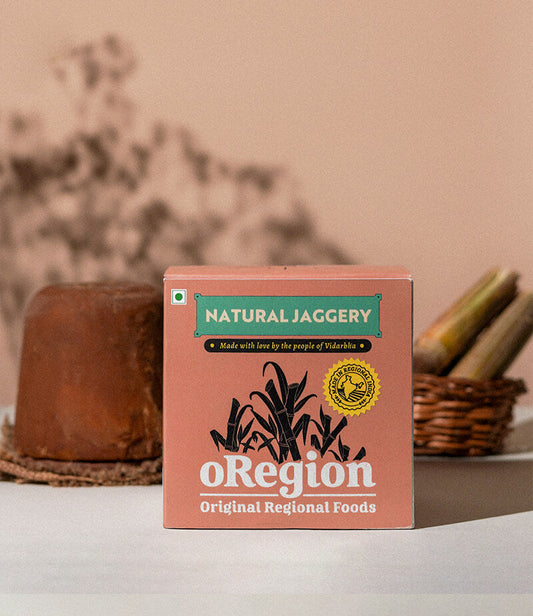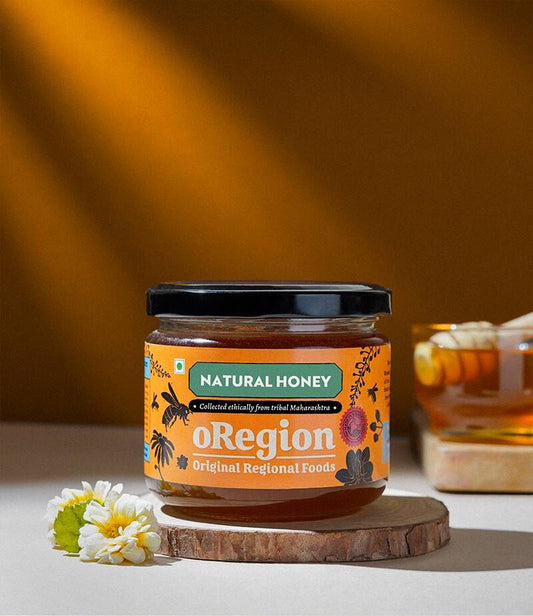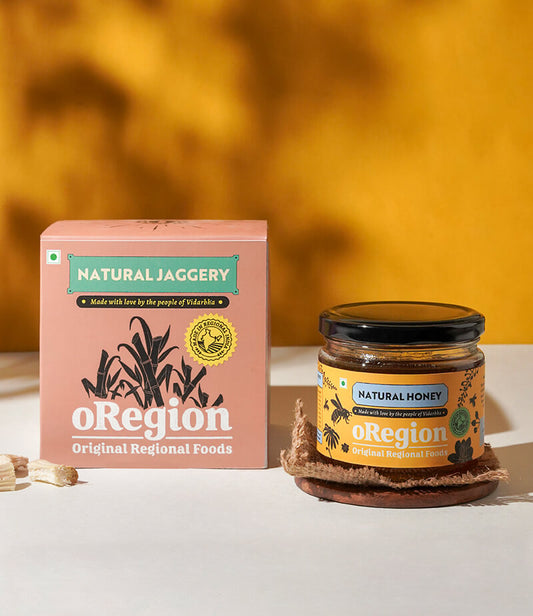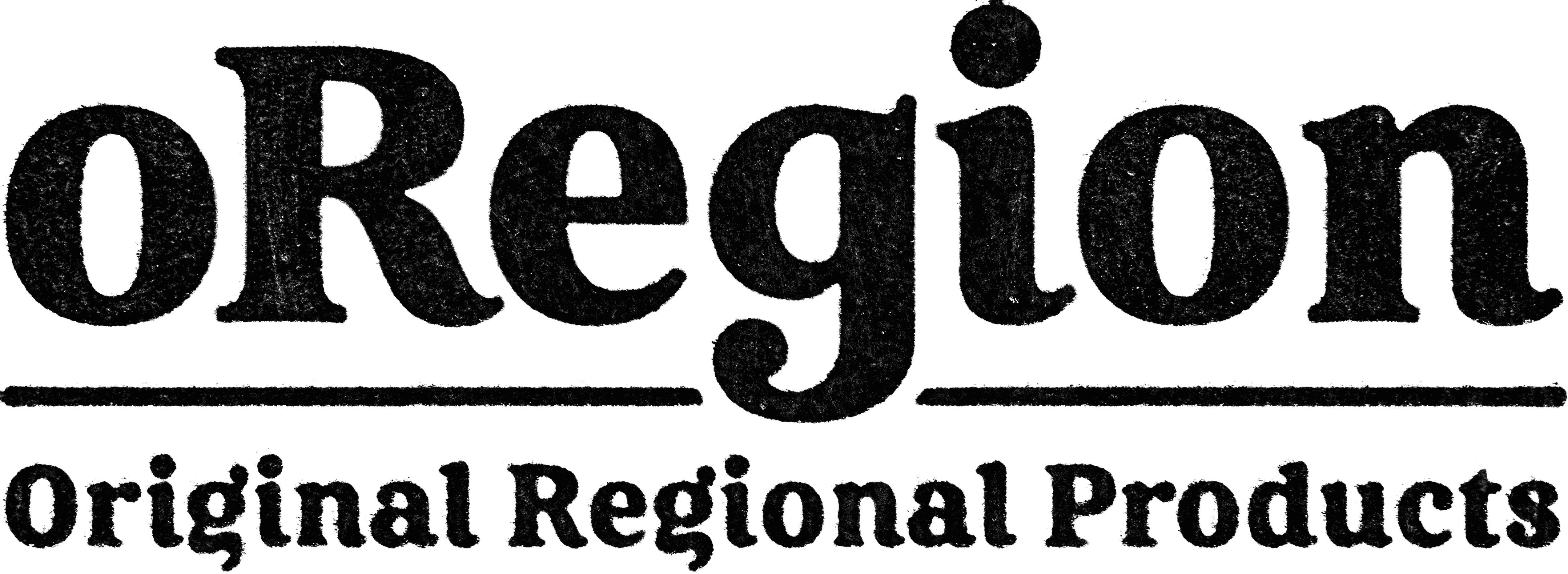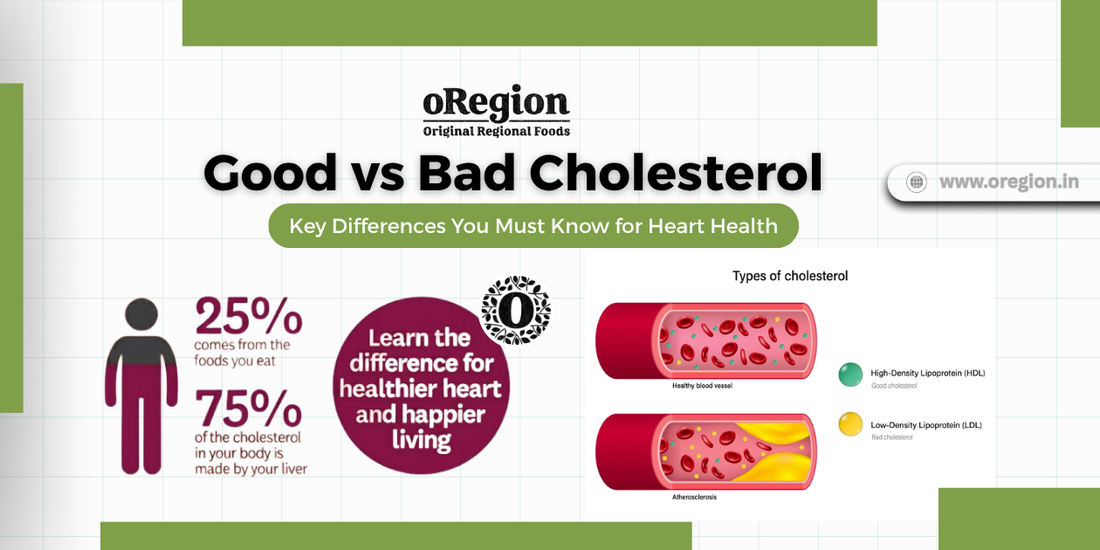
Good vs Bad Cholesterol: Key Differences You Must Know for Heart Health
By oregion foodsDo you know that cholesterol is not at all present in vegetable oils? Yes, you read that right! Despite all the fear around cholesterol and heart disease, vegetable oils like flaxseed, mustard, sesame, and groundnut oil contain zero cholesterol. Yet, people often blame oils and ghee for increased cholesterol levels without understanding how cholesterol truly works inside the body.
Every individual today seems to be worried about cholesterol. We often hear, “Avoid ghee,” “Don’t eat oily food,” or “Oil increases cholesterol.” But here’s the truth cholesterol is not your enemy. In fact, your body cannot function without it. What matters most is not removing cholesterol, but balancing it.
A Common Misconception About Cholesterol
In India, where nearly 200 million people suffer from cholesterol imbalance, misinformation is widespread. Many believe eating ghee or oil increases cholesterol levels. The reality is, cholesterol is a natural substance produced by your liver about 75% of it while only 25% comes from the food you eat.
So, blaming every drop of ghee or oil for cholesterol rise is like blaming rain for floods when the real issue is poor drainage. The body needs cholesterol to make hormones, vitamin D, and bile acids that digest fats. The problem begins when cholesterol transportation inside your body goes wrong.
The Gap Between What We Think and What It Actually Is
People often confuse fat with cholesterol, but they are not the same. Cholesterol is a waxy substance, while fats are macronutrients that provide energy. Oils and ghee contain different types of fats (saturated, monounsaturated, polyunsaturated), which determine how they affect cholesterol balance —not cholesterol itself.
For example, Cold Pressed Oils like flaxseed oil, mustard oil, Cold Pressed Sesame Oil, and groundnut oil are rich in healthy fats and Omega fatty acids that improve heart health naturally. They help increase “good” cholesterol (HDL) and reduce “bad” cholesterol (LDL) — keeping your arteries clean and flexible.
Difference Between Fat and Cholesterol – How People Often Misunderstood
Think of fats as the fuel and cholesterol as the construction material your body uses to build cells, produce hormones, and support brain function. Fats influence how cholesterol moves in the bloodstream, but they are not cholesterol themselves.
The real misunderstanding occurs when people consume refined oils high in trans fats. These are the actual culprits that increase LDL levels and reduce HDL. In contrast, oils extracted using the cold-pressed or Bilona method such as oRegion A2 Gir Cow Ghee, oRegion Flaxseed Oil, and Cold Pressed Mustard Oil preserve natural nutrients and help regulate cholesterol.
HDL and LDL Are Not Cholesterol — They Are Carriers of Cholesterol
Here’s an easy way to understand it: Think of HDL and LDL as delivery agents in your body. Cholesterol itself doesn’t float freely in your bloodstream; it needs a carrier — that’s where HDL (High-Density Lipoprotein) and LDL (Low-Density Lipoprotein) come in.
-
HDL (Good Cholesterol): Acts like a pickup agent that collects extra cholesterol from tissues and arteries and delivers it back to the liver for disposal.
-
LDL (Bad Cholesterol): Functions like a delivery agent that takes cholesterol from the liver to the cells. When too much LDL circulates, it deposits cholesterol in artery walls, forming plaque.
This is why HDL is known as the “good” cholesterol and LDL as the “bad” cholesterol — based on what they do, not what they are.
The Good and Bad: Why HDL Is Good and LDL Is Called Bad
The distinction lies in their function, not their existence. Your body needs both HDL and LDL in balance.
-
HDL removes cholesterol, preventing plaque buildup and keeping arteries clear.
-
LDL provides cholesterol for cell repair and hormone synthesis — but too much of it causes blockages.
An ideal cholesterol profile doesn’t eliminate LDL but ensures HDL levels are high enough to maintain equilibrium. This balance reduces the risk of heart disease, stroke, and high blood pressure.
Understanding the Function of Good and Bad Cholesterol
HDL – The Heart Protector
HDL acts like a clean-up crew. It removes cholesterol from arteries, preventing narrowing and hardening. It’s also anti-inflammatory, helping protect against oxidative stress.
Regular consumption of cold pressed flaxseed oil (rich in Omega-3) and A2 Gir Cow Bilona Ghee supports HDL increase naturally.
LDL – The Cholesterol Carrier That Needs Supervision
LDL helps transport cholesterol to where it’s needed — but when oxidized, it sticks to artery walls. A diet high in refined oils, fried foods, and trans fats leads to LDL buildup.
Switching to cold pressed oils such as mustard, sesame, and Cold Pressed Groundnut Oil reduces LDL levels effectively and safely.
What Is Important for a Healthier Life – Balance Between the Two
A healthy heart depends on the ratio of HDL to LDL. Eliminating fats or cholesterol-rich foods entirely can actually harm the body. Instead, the goal should be to:
-
Raise HDL: through physical activity, Cold Pressed Flaxseed Oil, and A2 Bilona Ghee.
-
Lower LDL: by reducing trans fats, refined oils, and processed foods.
Remember, cholesterol itself is essential — imbalance is the real threat.
How to Choose Edible Oils for Cooking
When choosing cooking oils, focus on the fat profile rather than the word “cholesterol.” Cholesterol is found only in animal-based products like ghee, not in vegetable oils.
Look for oils with:
-
Low Trans Fat: Avoid refined and hydrogenated oils.
-
Low Saturated Fat: Prevents excessive LDL buildup.
-
Balanced MUFA & PUFA: Maintains cholesterol harmony.
Best Oils for Heart Health
-
Cold Pressed Flaxseed Oil (Alsi Ka Tel)
-
Rich in Omega-3 fatty acids.
-
Boosts HDL and reduces inflammation.
-
Ideal for salads and smoothies.
-
oRegion Flaxseed Oil is a top choice for purity and heart protection.
-
Cold Pressed Mustard Oil (Sarso Tel)
-
High in MUFA and PUFA.
-
Reduces LDL and enhances blood flow.
-
Perfect for Indian cooking and sautéing.
-
Cold Pressed Groundnut Oil (Chekku Oil)
-
Maintains HDL levels.
-
Adds natural antioxidants to the diet.
-
Stable for deep frying without losing nutrients.
-
Cold Pressed Sesame Oil (Til Ka Tel)
-
Contains sesamol and sesamin — potent antioxidants.
-
Protects arteries and lowers oxidative stress.
-
Enhances flavor and heart health.
-
A2 Gir Cow Bilona Ghee
-
Contains short-chain fatty acids and fat-soluble vitamins (A, D, E, K).
-
Boosts HDL and reduces LDL naturally.
-
Safe for cooking at high temperatures due to its high smoke point.
When you choose oRegion’s A2 Gir Cow Ghee or Cold Pressed Oils, you’re choosing nature’s purest form of nutrition, designed to balance cholesterol naturally without chemicals or heat extraction.
Final Conclusion
Cholesterol isn’t something to fear — it’s something to understand. It doesn’t come from oils or ghee but from how your body manages fats. The key is not to avoid fats but to choose the right kind of fats.
When we use cold pressed oils like flaxseed, mustard, sesame, and groundnut oil, and pure A2 Gir Cow Bilona Ghee, we provide our body with the right nutrients to keep HDL high and LDL under control.
At oRegion, we believe in bringing oils and ghee that heal your heart, not harm it — made from indigenous seeds, extracted through traditional wood pressing and Bilona methods, and rich in natural antioxidants.
So, next time someone tells you to “stop eating ghee” or “avoid oils,” remind them — cholesterol is not your enemy, imbalance is. Balance your fats, nourish your heart, and let your body thrive with nature’s purest oils and A2 Ghee.
Follow us for more wellness tips
👉 Buy Now on oregion.in
📸 Instagram: @oRegion.in
📘 Facebook: facebook.com/oRegionfoods
▶ YouTube: https://www.youtube.com/@oRegion_foods
